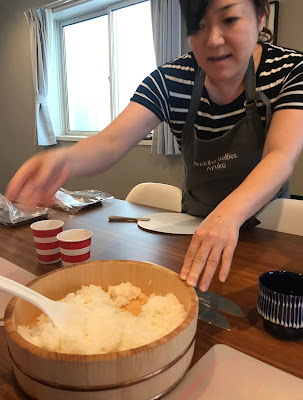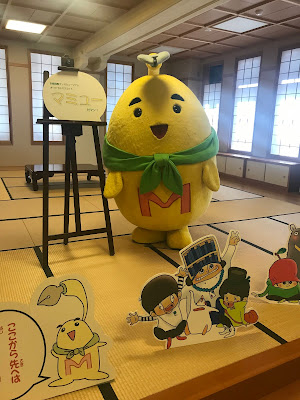Click Lit
In a Melbourne bar, a group of people are gathering, not sure if they’re meeting each other. They swap furtive looks, raise speculative eyebrows, but no-one is sure exactly what the other bloggers assembled by the Centre for Books Writing and Ideas look like. The newly founded centre is about bringing together writers of all types, but this group are only familiar with one another’s writing – could that be author of Reeling & Writhing, Genevieve Tucker? And where is rising star Angela Meyer, whose blog Literary Minded is syndicated by Crikey?
With a white beard, Perry Middlemiss is unmistakably the wizard of Oz lit blogs. He posted web pages about Australian literature way back in 1996, then began his Matilda blog in 2004 using news gathered from across the web. In part Matilda is an answer to print media’s limited criticism where Middlemiss believes “you come away from the review wondering if the critic actually recommends the books or not.” Matilda’s independence means Middlemiss can publish straight-up reviews alongside his favourite Australian book covers and ask if the US blogger Jessa Crispin’s appearance at this year’s Melbourne Writer’s Festival marks a newfound recognition of lit bloggers. “I have a lot of news items I want to highlight and personal items come out when I have something I want to write about,” Middlemiss explains his personal approach to blogging.
Matilda has seen the Australian lit blog scene flourish. In 2005 its blogroll featured just five blogs, by 2006 they’d scrolled up to 44. More recently newspapers and print publications have hopped aboard the blogwagon. This year the The Australian's A Pair of Ragged Claws appeared while Meanjin’s Spike and Overland’s self-titled blog have both drawn new audiences to established literary journals.
In the US the appearance of lit blogs has led to the sacking of book critics at major newspapers, but Middlemiss remains upbeat. “Litblogs won't force traditional print critics and reviewers out of business, nor will it happen the other way… Traditional print criticism needs to become more relevant to the average reader.” He’s already seen newspaper journalism shift towards the personal approach of blogs and sees “the rise of writer lit blogs as a major development in Australia over the past few years.”
Sydney-based author James Bradley was reluctant to start blog, because he once believed the bookosphere “has a reputation for being a place filled with flamers and wingnuts screaming abuse.” Authors are certainly more vulnerable on the web with instant comments and potential cyber-stalking. But the author of The Resurrectionist believes “people learned to moderate their behaviour. Partly it's just that we're getting better at using the technology”. Bradley’s City of Tongues follows the writer’s stream of consciousness with posts developing his ideas for an article on e-readers or following up on his essay about depression and creativity. “The nice surprise has been how many positive relationships and friendships I've developed through the blog: that community aspect is a real joy.”
City of Tongues lets Bradley embellish his text with video and images whether it’s to comment on his favourite comic book covers or link to film trailers he wants to share. But the blog also allows Bradley to write more flexibly than his typecasting as a literary novelist/critic might allow in print. “In recent years I've found my interests are more and more out of sync with the sorts of things mainstream media will publish… I decided I might as well write the stuff anyway and just put it on the net.” And Bradley has no shortage of readers. In a new iteration of the lit blog, Bradley has recently joined novelist and blog veteran John Birmingham, Larry Buttrose and others to ‘curate’ an online lit mag, The Group.
Internationally, group blogs have proven very successful. Jessa Crispin, who Middlemiss calls ‘the queen of lit blogs’, began Bookslut in 2002 as a way of sharing her opinions. It evolved into a webzine with multiple authors just three months later. “We got a lot of attention fast because there was nothing quite like us online. Now I can't even imagine how you would launch something like Bookslut...”Crispin says.
Bookslut’s longer author interviews and reviews have been key to the site’s success. “I remember being told that people don't want to read things of length online, you can never publish quality original content online. I thought, bullshit… I've been proven right, because more lengthy content gets posted online all the time”.
And it’s this longer content that has built big audiences for bloggers and, in the case of Bookslut, even advertising income. Just as Bradley blogs about subjects that mainstream media ignore, longer writing could be moving online as newspapers find their page counts shrinking. With no printing costs, lit blogging is limited only by enthusiasm. Bradley’s passion for blogging isn’t waning. “I'm quite clear that the most exciting writing happening today is happening online, and I want to be part of that conversation.”
This article originally appeared in The Big Issue, No. 335.
With a white beard, Perry Middlemiss is unmistakably the wizard of Oz lit blogs. He posted web pages about Australian literature way back in 1996, then began his Matilda blog in 2004 using news gathered from across the web. In part Matilda is an answer to print media’s limited criticism where Middlemiss believes “you come away from the review wondering if the critic actually recommends the books or not.” Matilda’s independence means Middlemiss can publish straight-up reviews alongside his favourite Australian book covers and ask if the US blogger Jessa Crispin’s appearance at this year’s Melbourne Writer’s Festival marks a newfound recognition of lit bloggers. “I have a lot of news items I want to highlight and personal items come out when I have something I want to write about,” Middlemiss explains his personal approach to blogging.
Matilda has seen the Australian lit blog scene flourish. In 2005 its blogroll featured just five blogs, by 2006 they’d scrolled up to 44. More recently newspapers and print publications have hopped aboard the blogwagon. This year the The Australian's A Pair of Ragged Claws appeared while Meanjin’s Spike and Overland’s self-titled blog have both drawn new audiences to established literary journals.
In the US the appearance of lit blogs has led to the sacking of book critics at major newspapers, but Middlemiss remains upbeat. “Litblogs won't force traditional print critics and reviewers out of business, nor will it happen the other way… Traditional print criticism needs to become more relevant to the average reader.” He’s already seen newspaper journalism shift towards the personal approach of blogs and sees “the rise of writer lit blogs as a major development in Australia over the past few years.”
Sydney-based author James Bradley was reluctant to start blog, because he once believed the bookosphere “has a reputation for being a place filled with flamers and wingnuts screaming abuse.” Authors are certainly more vulnerable on the web with instant comments and potential cyber-stalking. But the author of The Resurrectionist believes “people learned to moderate their behaviour. Partly it's just that we're getting better at using the technology”. Bradley’s City of Tongues follows the writer’s stream of consciousness with posts developing his ideas for an article on e-readers or following up on his essay about depression and creativity. “The nice surprise has been how many positive relationships and friendships I've developed through the blog: that community aspect is a real joy.”
City of Tongues lets Bradley embellish his text with video and images whether it’s to comment on his favourite comic book covers or link to film trailers he wants to share. But the blog also allows Bradley to write more flexibly than his typecasting as a literary novelist/critic might allow in print. “In recent years I've found my interests are more and more out of sync with the sorts of things mainstream media will publish… I decided I might as well write the stuff anyway and just put it on the net.” And Bradley has no shortage of readers. In a new iteration of the lit blog, Bradley has recently joined novelist and blog veteran John Birmingham, Larry Buttrose and others to ‘curate’ an online lit mag, The Group.
Internationally, group blogs have proven very successful. Jessa Crispin, who Middlemiss calls ‘the queen of lit blogs’, began Bookslut in 2002 as a way of sharing her opinions. It evolved into a webzine with multiple authors just three months later. “We got a lot of attention fast because there was nothing quite like us online. Now I can't even imagine how you would launch something like Bookslut...”Crispin says.
Bookslut’s longer author interviews and reviews have been key to the site’s success. “I remember being told that people don't want to read things of length online, you can never publish quality original content online. I thought, bullshit… I've been proven right, because more lengthy content gets posted online all the time”.
And it’s this longer content that has built big audiences for bloggers and, in the case of Bookslut, even advertising income. Just as Bradley blogs about subjects that mainstream media ignore, longer writing could be moving online as newspapers find their page counts shrinking. With no printing costs, lit blogging is limited only by enthusiasm. Bradley’s passion for blogging isn’t waning. “I'm quite clear that the most exciting writing happening today is happening online, and I want to be part of that conversation.”
This article originally appeared in The Big Issue, No. 335.




Comments
Post a Comment